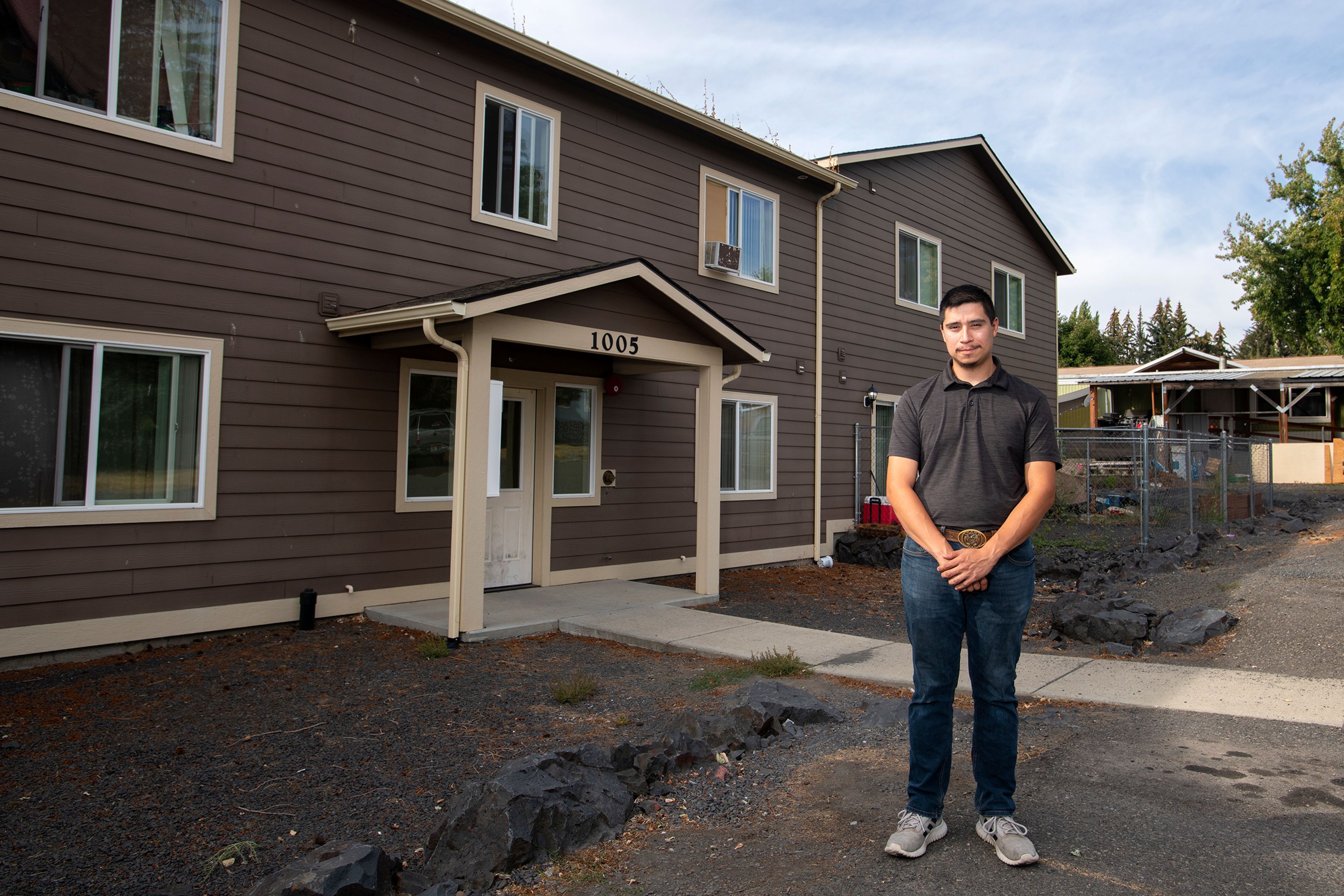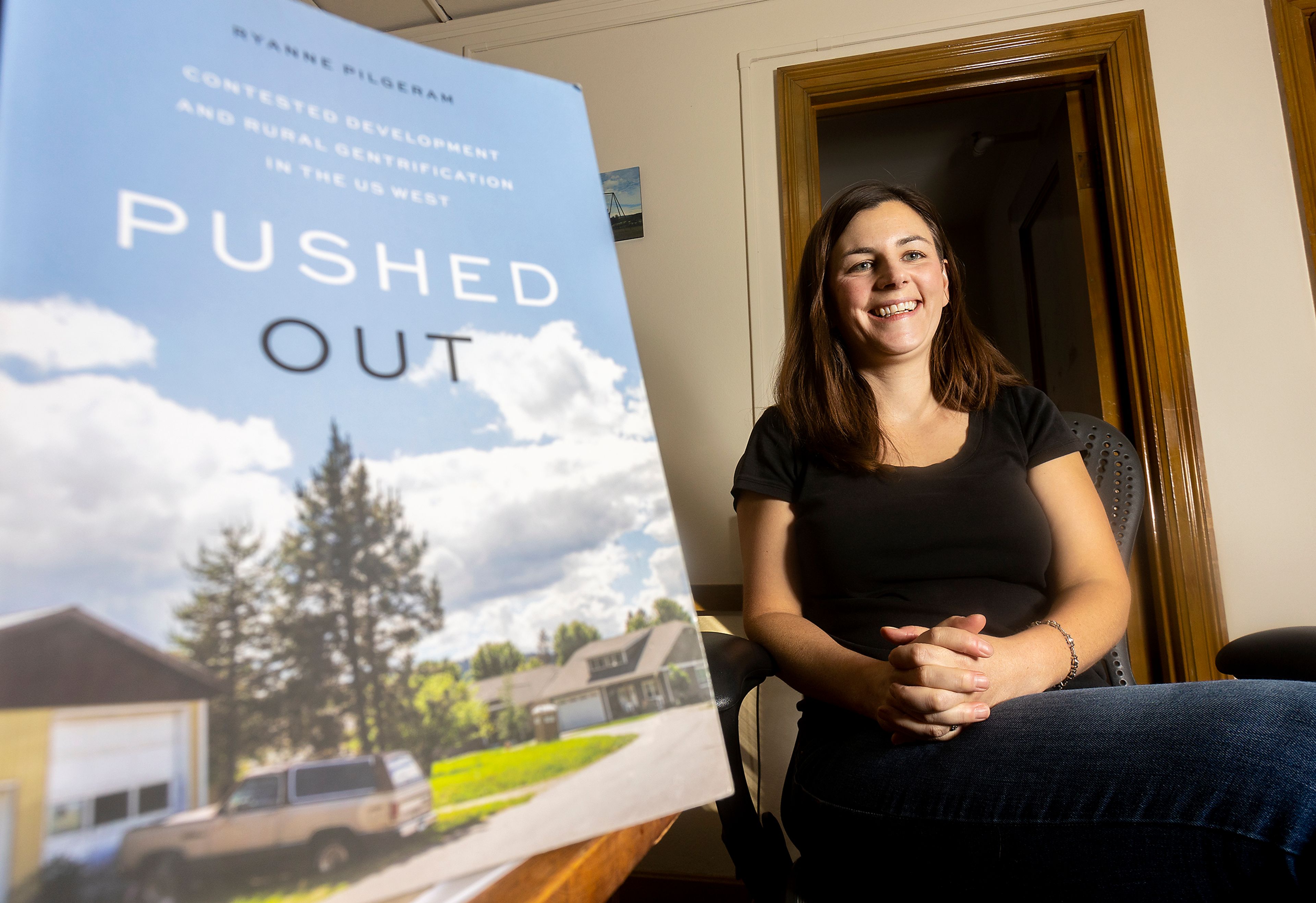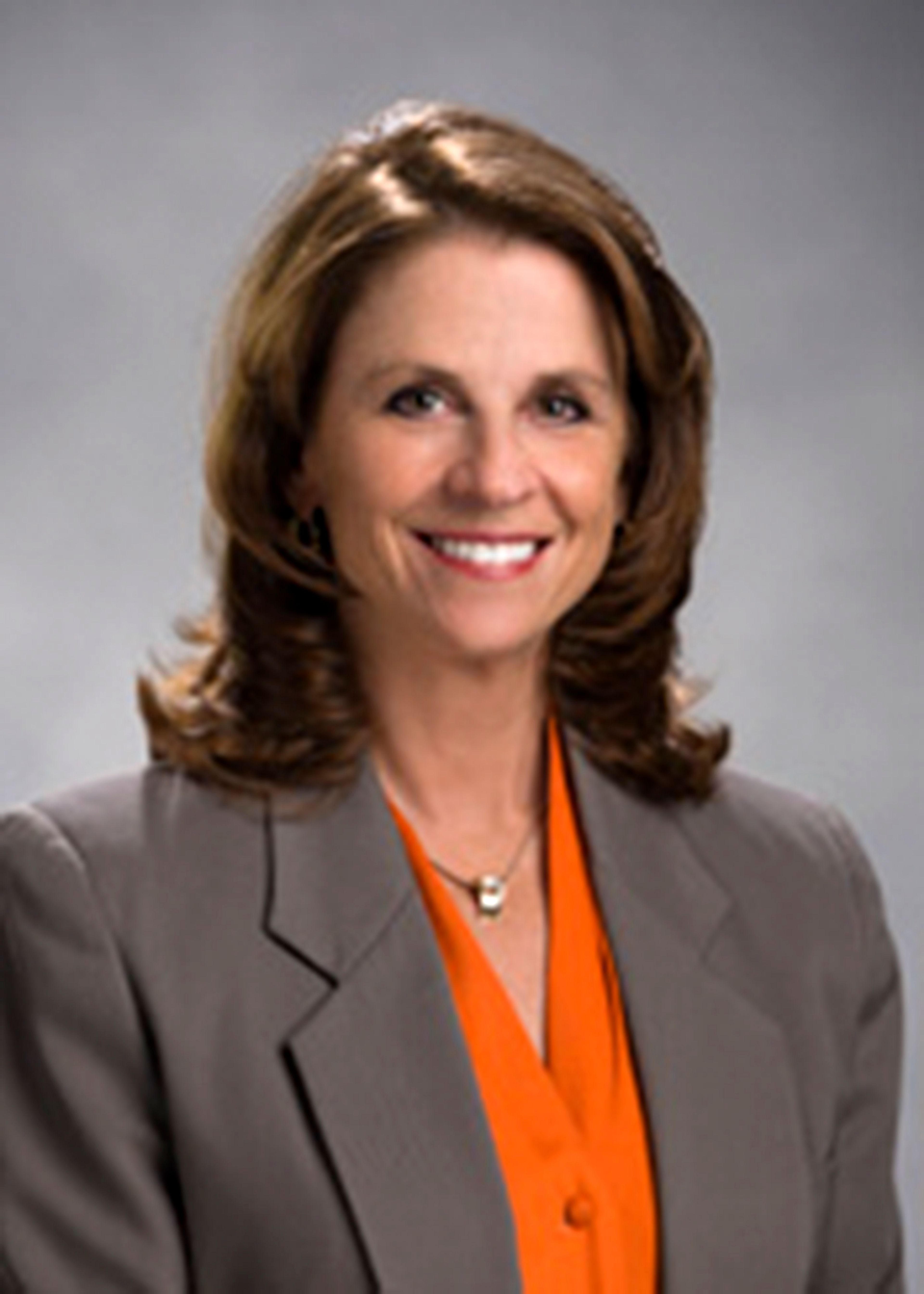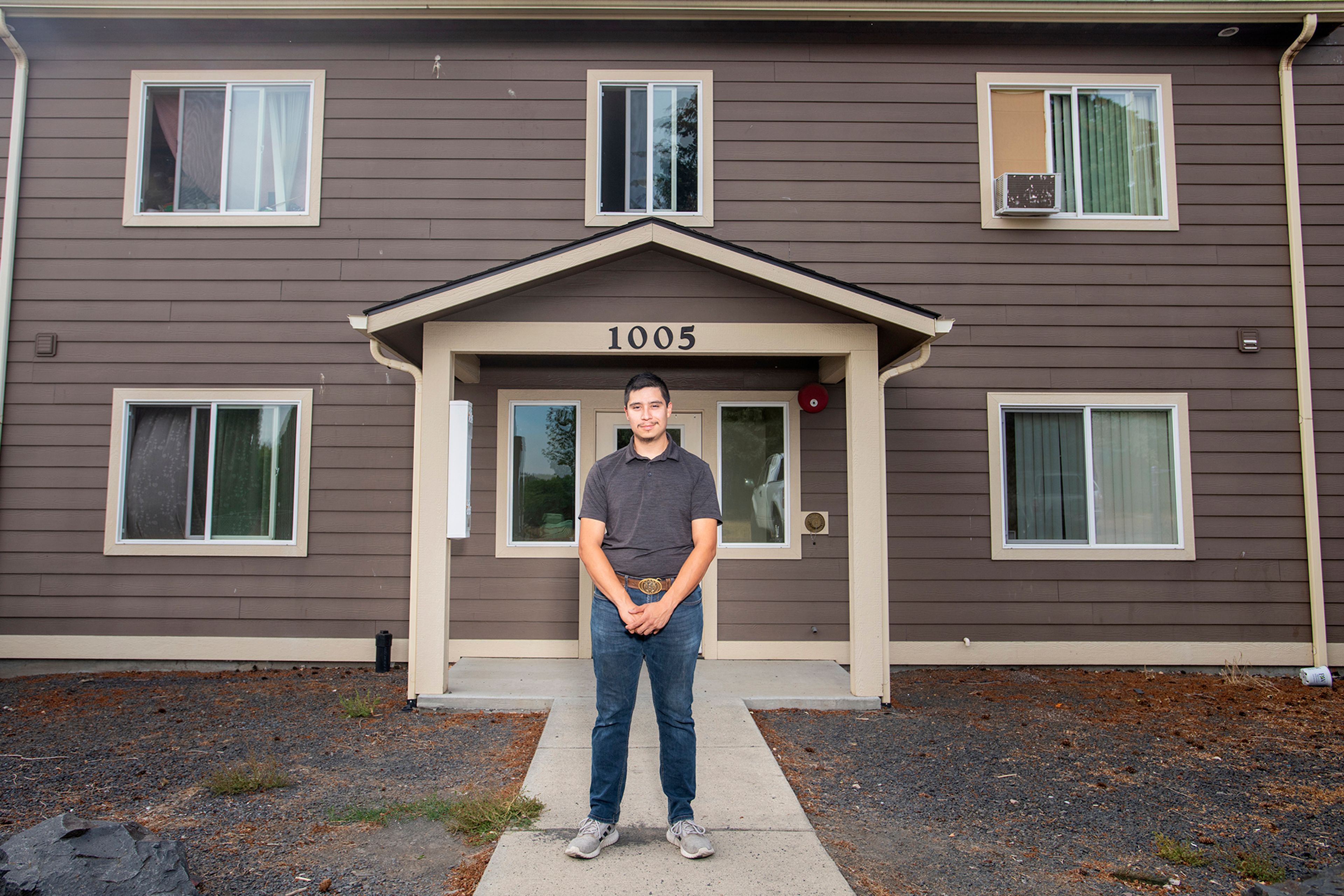Since its publication in May of last year, Ryanne Pilgeram’s book focused on rural gentrification has sold more than 1,000 copies. An impressive feat for an academic who doesn’t advertise.
A first-generation college student, she decided to go back to and write about Dover, Idaho, where she grew up, after graduating from the University of Oregon with a Ph.D. in sociology. Her book, “Pushed Out: Contested Development and Rural Gentrification of the American West,” focuses on housing inequality in the rural Pacific Northwest.
As the housing crisis continues in Idaho and throughout the nation, Pilgeram, a professor of sociology at the University of Idaho, said people need to be working on it at every level. That is especially true of those voted into office during this midterm election year.
“And if they don’t act, they’re letting down the people of their communities and their state,” she said. “I’m tired of people abdicating responsibility for these problems, particularly at the state, federal and local level. Everyone needs to quit passing the buck and do something for their communities.”
The expansion of rental properties through Airbnb and Vrbo, and those who own homes in which they reside only part of the year, are all compounding the problem, Pilgeram said.
David Gutierrez-Aguirre is a Moscow resident who recently had to find a new place to live, which he said was a difficult task in a college town with limited housing available.
“Obviously, for the landlords, it’s good for them, they make plenty of profits, setting their prices as competitive as they want in this dense town that has low supply,” Gutierrez-Aguirre said. “But, for the human at the end of the lease, it’s always really expensive.”
Gutierrez-Aguirre, who eventually moved into a studio apartment, said he hopes more multifamily units and high-density housing can be built in Latah County to better support the growing population.
“And yet, there’s these suburban developments going up that are too overpriced and way out of reach for many,” he said.
While in college, Gutierrez-Aguirre said he concentrated on following his American dream to get a career, and then a house. But even with a professional full-time job, he said saving up for a house seems unachievable.
Rural gentrification affects families tied to hometowns
“We see a lot of family fracturing in rural gentrification,” Pilgeram said. “And one of the things that have made rural communities places people want to live is often that those deep ties to family and kind of kin networks, and those are being displaced through rural gentrification.”
When Pilgeram studied her hometown of Dover, a small town near Sandpoint, she found 70% of the homes were unoccupied seasonally, which means those homeowners aren’t necessarily invested in the community.
That puts a lot of pressure on a very small group of local businesses to support all kinds of activities, she said, especially in places like Idaho, where so many of the schools are supported by local property tax levies.
“And if people in those communities don’t have children in the community, they don’t have ties to those communities. They don’t have a lot of reasons to be invested in those communities.”
According to recent U.S. Census data, almost 10% of homes nationwide sit vacant throughout most of the year. Pilgeram said so many homes sitting empty while others don’t have anywhere to live suggests something about our economic system is broken.
“We need people to treat poverty as part of the economy,” she said. “We treat it like it’s an aberration, but poverty is built into our economic system.”
Pilgeram said one of the reasons we don’t understand poverty in American culture is because poverty is functional for people in power. If people can’t move to a new place because there isn’t any more affordable housing, they are forced to pay the rent increases to stay housed.
“Poor people have dreams for their kids, and dreams for themselves. And they get tired, and they’re lonely, or they’re sad. It shouldn’t be necessary to say: Poor people have feelings,” she said. “I think that was one of the contributions of my book, in certain ways, is trying to remind people that everybody in our community wants strong ties and relationships, and how difficult that is when we put these economic barriers between people.”
Northwest solutions
Pilgeram said one thing Idaho elected officials can do is change the zoning laws that make it difficult to require a certain amount of affordable housing within a new development.
The Oregon Legislature imposed a statewide rent control policy in 2019. It caps rent hikes at 7% plus inflation for any 12-month period.
Programs like HomeShare Kootenai County have been popping up as another temporary solution.
Creator Kiki Miller said the program pairs people who have extra rooms with people looking for housing while they work on a more permanent place to live.
“So, there’s a lot of people in transition, who may be recently widowed or divorced, may just not want to be alone in a big house. And, maybe, we can provide some comfortable conversations and solve a couple problems,” Miller said.
She said the program includes a vetting process and background checks. She wants to be sure the program works to match up people whose lifestyles are compatible.
Pilgeram said there are plenty of solutions to help citizens across the country get housing — they simply aren’t being done at a scale to help the amount of people in need.
“We could use property tax levies to tax second homeowners to help build affordable housing — these are not actually that difficult of problems,” she said. “We just don’t have any political will to support working class people in our state.”
Paterson may be contacted at lauren.paterson@wsu.edu.
Editor’s note: This is the second installment of a collaborative, intermittent series with the Lewiston Tribune and Northwest Public Broadcasting on the housing shortage facing the Northwest.












